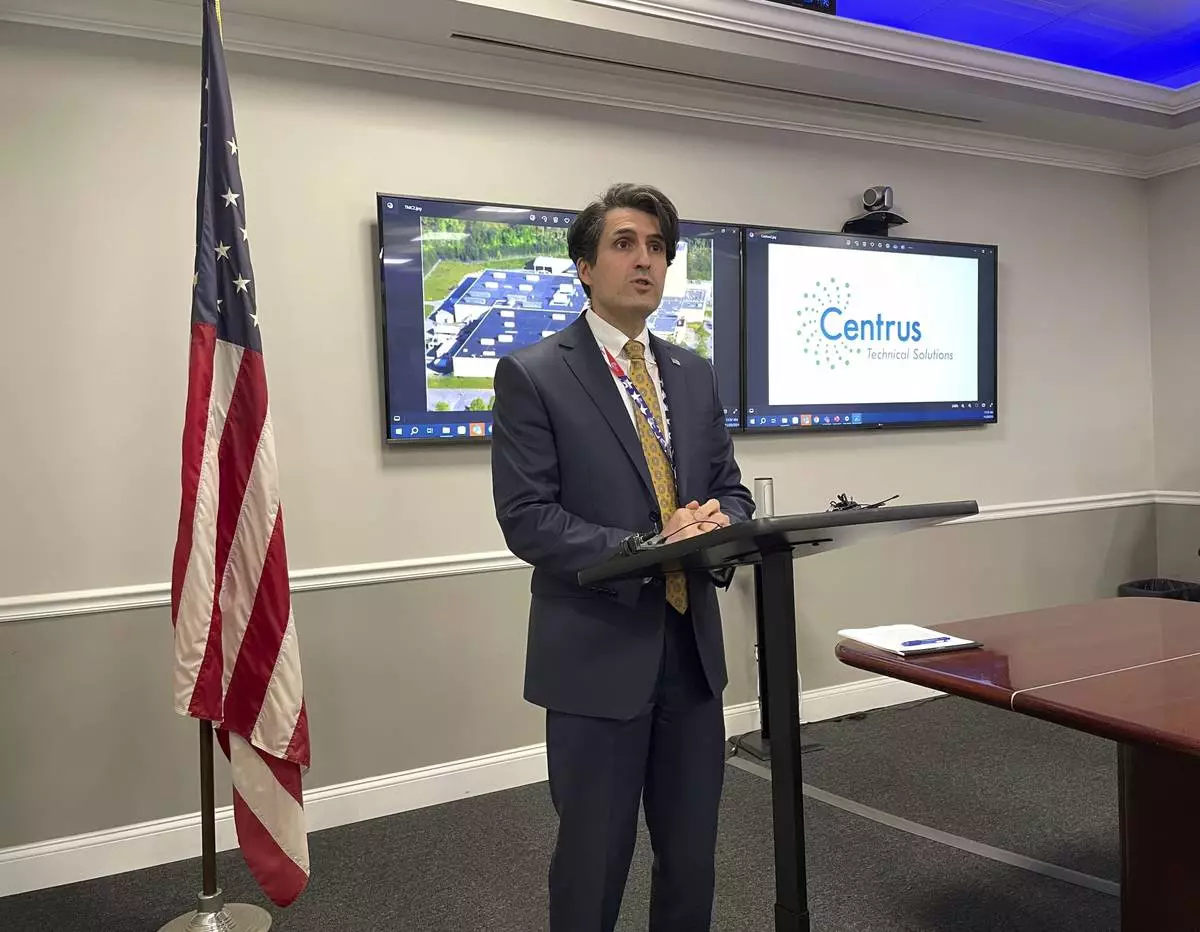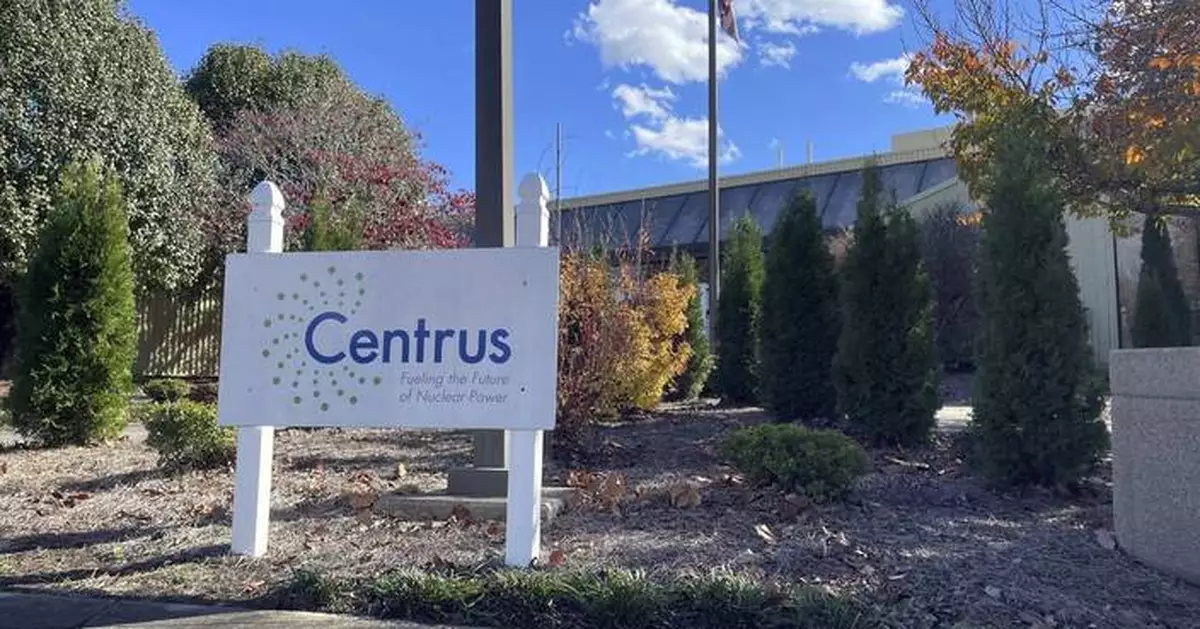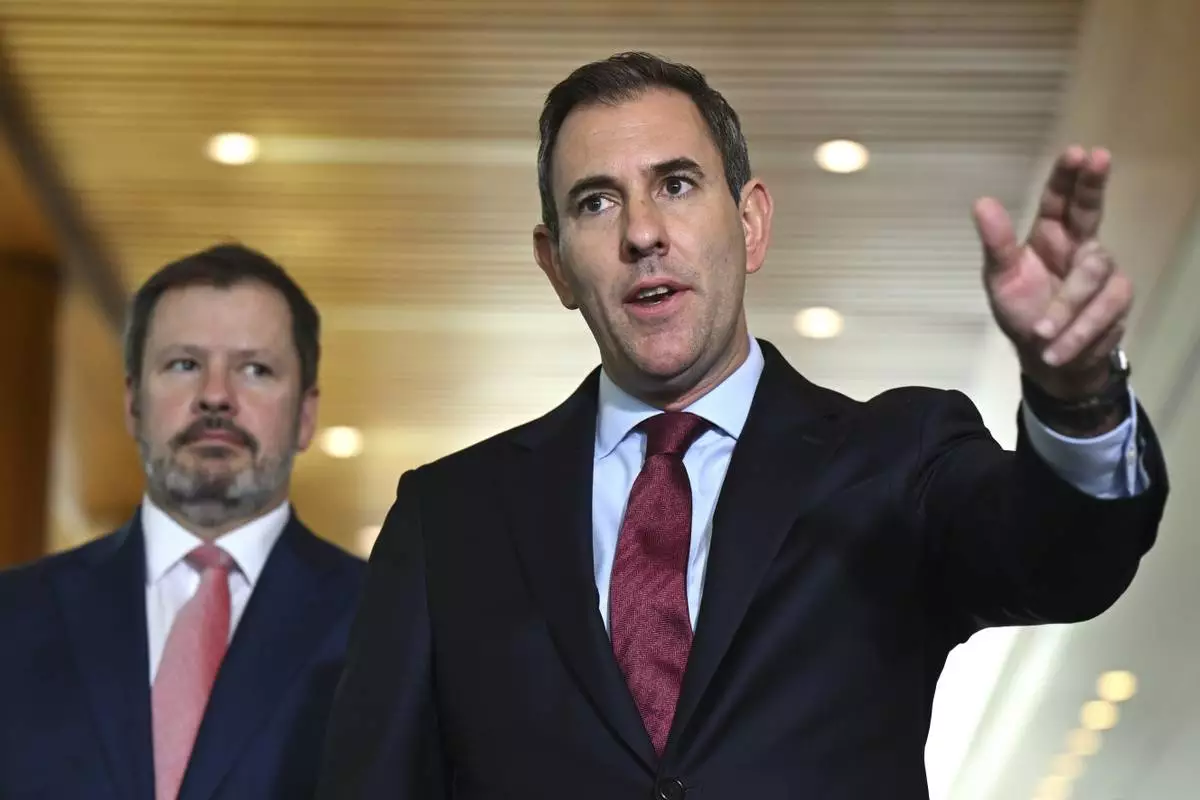OAK RIDGE, Tenn. (AP) — A supplier of fuel for nuclear power plants announced a $60 million expansion in Tennessee on Wednesday, promising to resume and grow its manufacturing of high-tech centrifuges there to enrich uranium at its facility in Ohio.
The expansion by Centrus Energy at its massive facility in Oak Ridge comes as the U.S. ramps up its reliance on nuclear power as a climate change solution. The Tennessee facility, which stretches 440,000 square feet, is where they make and test 40-foot-high centrifuges that will be transported to the company's enrichment facility in Piketon, Ohio. The company gave reporters a tour Wednesday, showing off the centrifuges but covering other classified equipment with tarps.
Centrus is one of several companies working on enriching uranium in the U.S., which is currently dependent on foreign providers. Russia has about 44% of the world’s uranium enrichment capacity, supplying some 35% of U.S. imports for nuclear fuel, according to the Department of Energy. Just last week, Russia announced it would temporarily limit its exports of enriched uranium to the U.S. in response to the U.S. deciding to ban Russian uranium starting in 2028.
Western nuclear operators have been looking for suppliers of nuclear fuel other than Russia since it invaded Ukraine in 2022, S&P Global Commodity Insights said Wednesday.
Centrus President and CEO Amir Vexler told reporters Wednesday that the expansion was not due to Russia's decision-making, saying that the company's board approved the plans a few weeks ago. But he said the move illustrates why the U.S. can't depend on other countries for its nuclear fuel.
“Nuclear is one of the key essential stabilizers in our sources on the grid. And nuclear fuel is a key essential element of that,” Vexler said. “Why would you not worry about the security of supply of that key ingredient to our grid?”
The company partners with the nearby Oak Ridge National Laboratory, known for its role as one of the labs that helped develop the atomic bomb. Centrus is expanding in hopes of tapping into a fund of $3.4 billion from the Department of Energy set aside for domestic uranium enrichment. Headquartered in Bethesda, Maryland, the company currently has about 300 employees, including about 120 in Oak Ridge. The expansion could add 300 more in Oak Ridge.
In the same city, another company, Orano USA, plans to build a uranium enrichment facility.
The Biden administration set a target this month of at least tripling nuclear power in the United States by 2050 to help avoid the worst consequences of climate change. The United States will aim to add 200 gigawatts of new nuclear energy capacity, according to the administration’s new strategy. One gigawatt can power roughly 750,000 to 1 million homes for a year, though the exact amount varies by region and depends on energy use.
The United States currently has 94 operating reactors that produce power without emitting planet-warming greenhouse gases. Nuclear power has provided about one-fifth of the nation’s electricity since the 1990s.
Among the steps to expand nuclear power, the strategy recommends building large gigawatt-scale reactors, constructing small modular reactors and microreactors, extending the lifespan of some existing reactors and working to restart ones that retired for economic reasons. It also recommends improving licensing and developing the nuclear workforce.
President-elect Donald Trump has said he is also interested in developing the next generation of nuclear reactors that are smaller than traditional reactors.
For a company like Centrus, the business strategy includes producing uranium enriched to levels that are standard in the nuclear power plants operating today, plus at a higher level for the type of commercial small reactors that are being developed in the U.S., though none are under construction yet. Centrus' subsidiary, American Centrifuge Operating, was one of four companies awarded a Department of Energy contract aimed at growing the higher-level uranium enrichment.
Some advocates have raised concerns about the more highly enriched uranium.
Edwin Lyman, the director of nuclear power at the Union of Concerned Scientists, said his group thinks the uranium is enriched enough in the process to make nuclear weapons, and worries about the security of keeping the material from getting into the wrong hands either at enrichment facilities, en route elsewhere or at some of the small reactors still in the works.
“The concern is that we believe that this material is more dangerous than is currently widely accepted,” Lyman said.
Asked about those kind of concerns, Vexler praised the U.S. Nuclear Regulatory Commission as “the best regulator in the business,” saying regulators ensure the material is safeguarded properly.
Associated Press writer Jennifer McDermott contributed from Providence, Rhode Island.

Centrus Energy President and CEO Amir Vexler speaks at a news conference at its Technology and Manufacturing Center, on Wednesday, Nov. 20, 2024, in Oak Ridge, Tenn. (AP Photo/Jonathan Mattise)

Centrus Energy's Technology and Manufacturing Center in Oak Ridge, Tenn., Wednesday, Nov. 20, 2024, after the company announced an expansion of its production of centrifuges at the Tennessee facility to be used for to enrich uranium, which fuels nuclear power plants, at its operations in Piketon, Ohio. (AP Photo/Jonathan Mattise)










